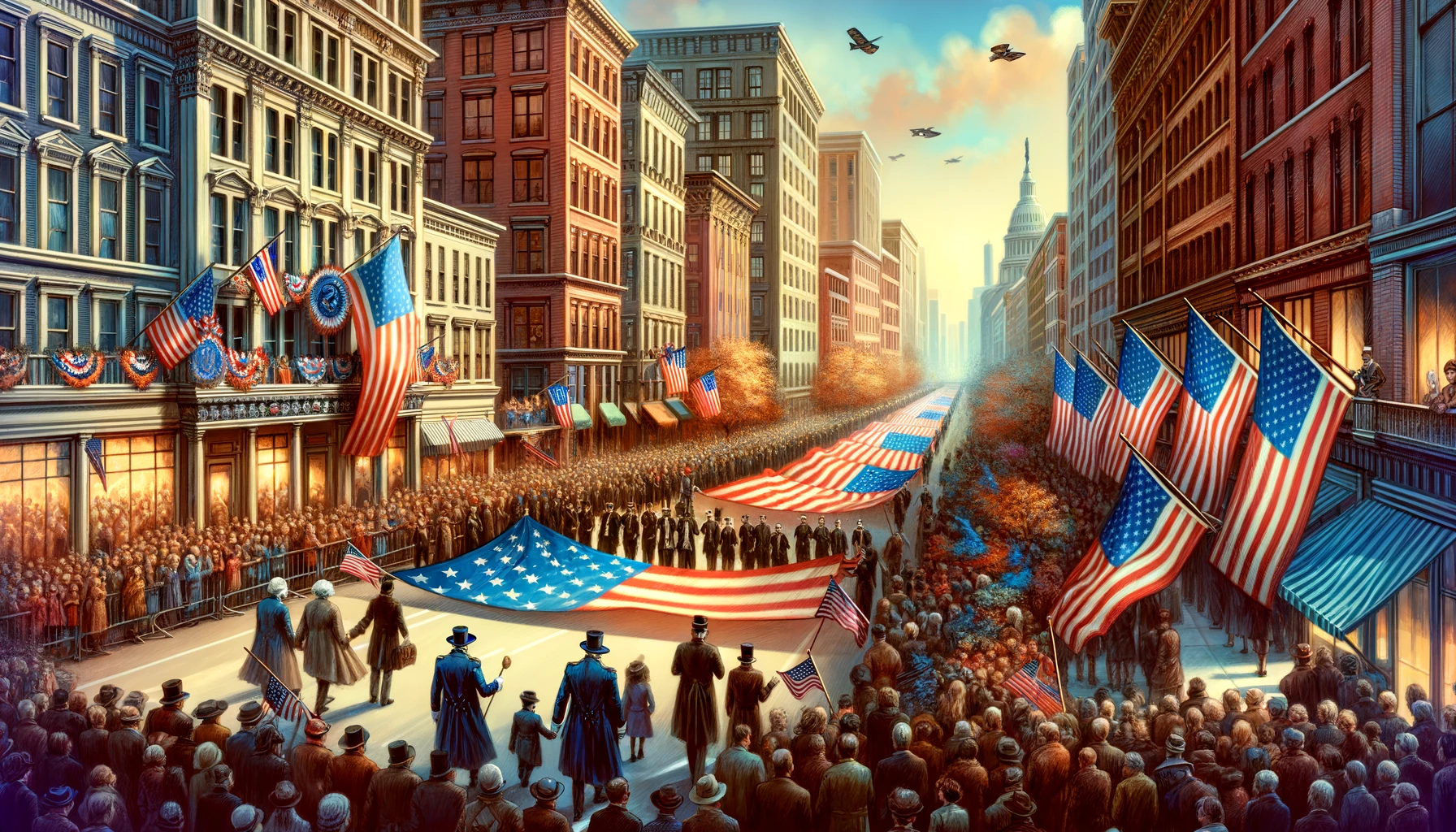From Washington's Birthday to Presidents' Day: A Holiday's Unexpected Journey
Feb. 18, 2024
 On the third Monday of February, amidst the hum of barbeques and whispers of holiday sales, a curious celebration takes place: Presidents' Day. While the day might evoke images of backyard gatherings and discounted mattresses, its history reveals a fascinating journey, weaving together reverence, evolution, and a touch of marketing savvy.
On the third Monday of February, amidst the hum of barbeques and whispers of holiday sales, a curious celebration takes place: Presidents' Day. While the day might evoke images of backyard gatherings and discounted mattresses, its history reveals a fascinating journey, weaving together reverence, evolution, and a touch of marketing savvy.
Rooted in Reverence: The Birth of a Holiday
The story begins in the late 19th century, fueled by the immense respect and admiration surrounding George Washington, the nation's first president. Following his death in 1799, spontaneous celebrations of his birthday, February 22nd, became a way for Americans to express their gratitude and remembrance. By the late 1870s, this sentiment solidified, and Washington's Birthday was officially recognized as a federal holiday.
Honoring More Than One: Lincoln Enters the Picture
However, the story didn't end there. As the 20th century dawned, another revered figure, Abraham Lincoln, whose birthday falls on February 12th, began receiving similar recognition. Some states declared his birthday a holiday, while others combined it with Washington's, creating a "Double Birthday" celebration.
Shifting Tides: The Uniform Monday Holiday Act
The 1960s brought a significant change. In an effort to create long weekends for workers, the Uniform Monday Holiday Act of 1971 shifted several federal holidays, including Washington's Birthday, to the nearest Monday. This shift, intended for convenience, inadvertently birthed the moniker "Presidents' Day," though it officially remains named "Washington's Birthday" at the federal level.
A Marketer's Touch: The Rise of "Presidents' Day"
In the 1980s, the term "Presidents' Day" gained significant traction, primarily due to marketing campaigns promoting holiday sales. While some historians lament the perceived overshadowing of Washington's legacy, the new moniker resonated with the public, encompassing a broader appreciation for all past presidents.
 Beyond Celebrations: A Day for Reflection
Beyond Celebrations: A Day for Reflection
Presidents' Day, in its current form, presents an opportunity to go beyond mere festivity. It's a chance to delve into the rich history of the American presidency, exploring the evolution of power and responsibilities, the triumphs and failures of past leaders, and the ongoing debates about the office's role in shaping the nation.
From Humble Beginnings to Global Impact
From Washington's cautious navigation of foreign policy to Lincoln's unwavering leadership during the Civil War, from Roosevelt's "bully pulpit" approach to Wilson's global influence, the presidency has consistently adapted and evolved alongside the nation it serves. Presidents' Day allows us to reflect on this trajectory, acknowledging the successes and challenges that have shaped the office into what it is today.
A Conversation for Our Times
In a world grappling with complex challenges and ongoing debates about democracy and leadership, Presidents' Day offers a valuable opportunity for reflection and engagement. As we celebrate the legacy of past presidents, we must also consider the future of the office and its role in addressing the issues facing our nation.
![]()
Whether it's through historical analysis, thought-provoking discussions, or active participation in civic life, let us use Presidents' Day as a springboard for deeper understanding and engagement with this critical institution. After all, the presidency is not just a historical relic, but a living, evolving force that continues to shape the American story.
